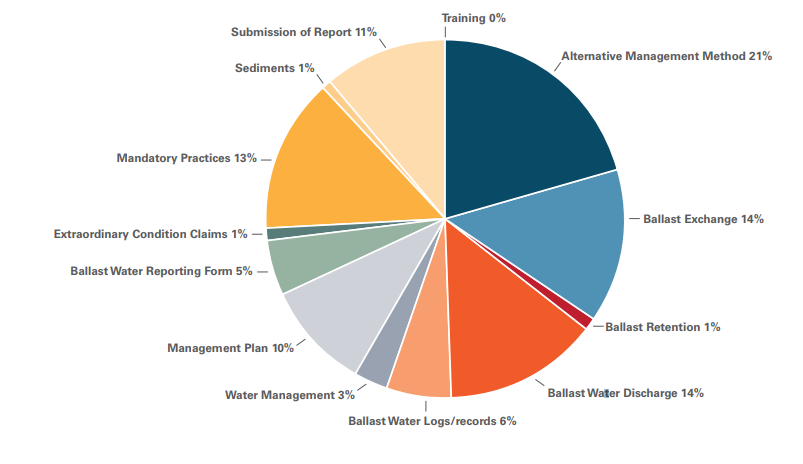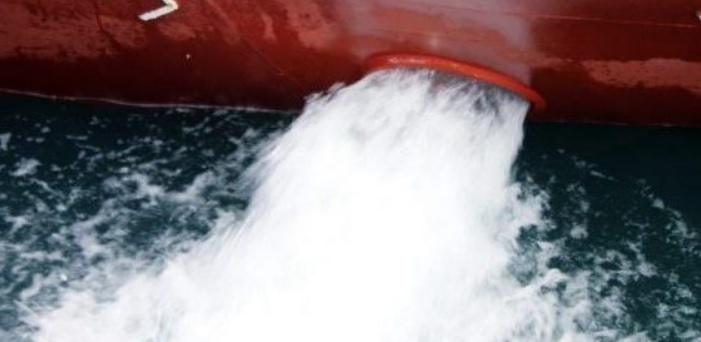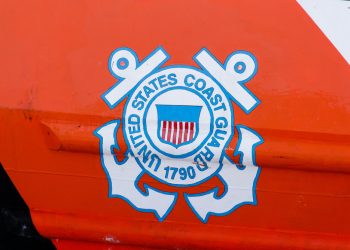In its recently-published annual PSC report for 2018, the US Coast Guard said it identified a total of 119 BWM deficiencies, while it imposed operational control restrictions on 17 vessels due to the severity of BWM deficiencies/noncompliance. The majority of operational controls issued to vessels were for inoperable systems or failure to employ one of the approved BWM methods as per 33 CFR 151.2025.
Namely, USCG conducted 8,140 ballast water exams, which is relatively close to the number conducted in 2017 (8,229). The majority of the 119 BWM deficiencies were related to:
- inoperable systems (mandatory practices or alternative management method in chart),
- ballast water exchange, and
- the discharge of untreated ballast water into waters of the US.
Consequently, the Coast Guard imposed operational control restrictions on 17 vessels due to the severity of deficiencies/noncompliance. These vessels received Letters of Warning (2 total), Notices of Violation (8 total), and Administrative Civil Penalties (Class I) (11 total) for failure to implement BWM requirements.

Additionally, the report highlights that the majority of operational controls issued to vessels were for inoperable systems or failure to employ one of the approved BWM methods as per 33 CFR 151.2025. These cases were handled on a case-by-case basis subject to the discretion of the COTP.
In most cases, vessels were required to modify their cargo loading plan to facilitate safe and compliant ballast water discharges to be conducted offshore.
Many of the Coast Guard interventions associated with ballast water managements systems are attributed to vessel crews not actively using the system when trading outside US waters. Vessel operators are encouraged to include ballast water management systems into their vessel’s Safety Management System (SMS) and continue to use the system to maintain crewmembers’ proficiency in using this equipment.
…USCG explained.
In 2018, the Coast Guard published Navigation and Vessel Inspection Circular (NVIC) 01-18 to provide additional guidance to the maritime industry and Coast Guard personnel on the 2012 USCG ballast water regulatory amendments codified in Title 33, Code of Federal Regulations Part 151 Subparts C and D.
Additionally, the Office of Commercial Vessel Compliance released CG-CVC Policy 18-02, which clarified actions to be taken in the event that a ship’s ballast water management system (BWMS) becomes inoperable.
Both documents are important for understanding the US Coast Guard ballast water management (BWM) regulations. The US is not signatory to IMO’s BWM Convention.






























































